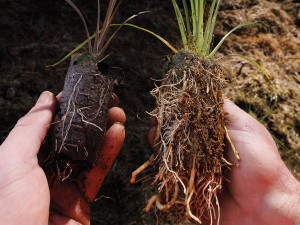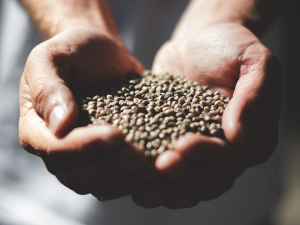Every farmer knows this.
They are the ones driving along boundary fences staring at the neighbour’s paddock and wondering what has been done and would it work on their place. They work with consultants and grill sales staff and field officers about potential gains associated with new products. They test new ideas and split paddocks to ‘see’. They go to field days, monitor farms and seminars to examine ‘innovations’.
Given all the activity, the current concern about shifting the spread of agricultural performance to the top end of production has no easy solutions.
If farmers aren’t changing, the risk is clearly too great for them to feel comfortable about gaining a positive outcome – a reward, in fact.
In 1970, Dr W. M. Hamilton, then director general of the DSIR, said that in the future “some of the changes affecting farming and markets will be technological and these in part can be foreseen; other changes, particularly affecting markets, are political and cannot be predicted… Many of these changes originate overseas.” He went on to say that “as in the past, farming must retain its flexibility to respond rapidly to changing economic situations or changes in market demands.”
Current farmers have grown up in Dr Hamilton’s future. They have remained flexible and have adapted to an increased global demand for food, increased costs, falling returns, increased regulations and the vagaries of the weather. They have shown resilience – the positive behavioural adaptation in response to stress.
Many have embraced change and adopted innovative practices and technologies – hence the dairy conversions and use of supplements and irrigation.
To create greater change with those who are not in the lead, it must be recognised that the challenge of being both innovative and resilient is a very large one. Factors for continued increases in productivity are motivation, ongoing commitment and energy, upfront finance, acceptance of a greater exposure to risk, and overall, increased knowledge and understanding to facilitate changes required.
In psychological research, the primary factor in modifying risk and increasing resilience is other people and their ability to provide care, support, trust and encouragement. Family, community and peers are important. So are experts – the consultants and advisors.
The point for the farmer and family is that risk and stress are reduced with understanding of the costs and implications of action and inaction.
The point for the expert is that the costs and implications aren’t just for a small group of research animals or a crop or paddock – they must be explained for the whole farm. While some of the benefits might not be monetary, the emotional benefits must still offset the emotional trauma in change. All of these factors impact upon the ability to change.
Enabling change in the future is a clear role for the farmer-funded levy bodies and the consultants. Perhaps MAF could enhance the enabling with funding for an expansion of the consultant role, embraced within the Sustainable Farming Fund. Integrating the research that is done by the Crown Research Institutes and universities, appropriate to the region and farm system, to give a whole-of-farm cost benefit analysis is real added-value. The next step, however, is to work with the farmer one-to-one to assist change – always remembering that if it looked possible on the neighbour’s place, it would already have been adopted.
As for the farmers with their eye on the neighbour’s – an eye on the path ahead is recommended both literally and figuratively.
• Jacqueline Rowarth is Professor of Agribusiness, University of Waikato.








